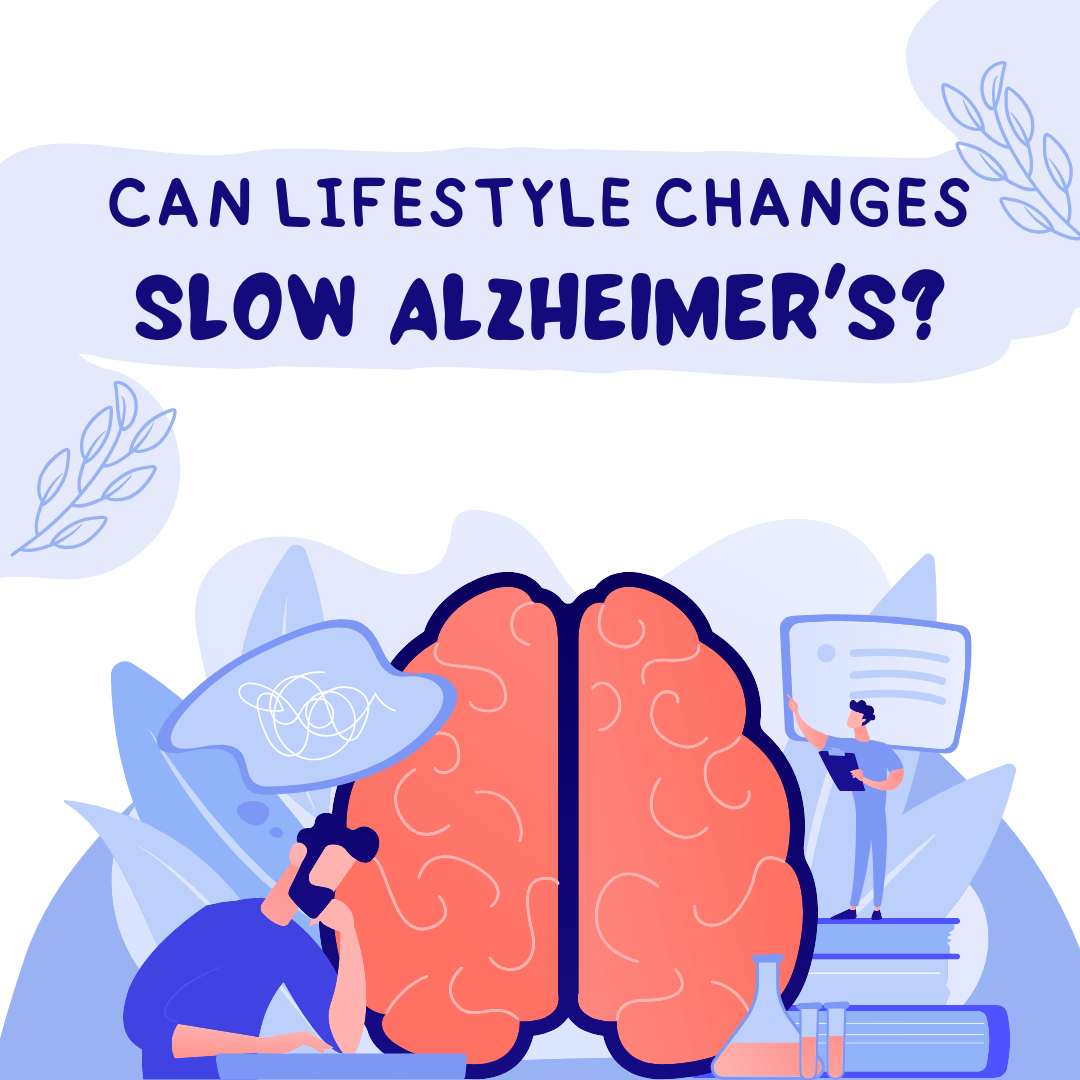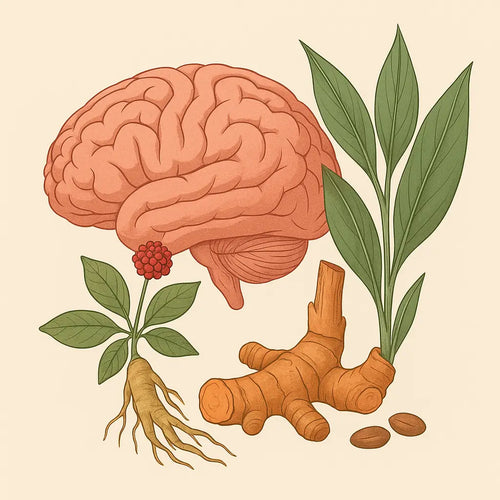
Alzheimer’s disease is a devastating neurodegenerative condition, but recent research (Ornish D et.al., 2024) offers hope. A randomized controlled trial (RCT) investigated how lifestyle modifications like diet, exercise, and stress management affect the progression of mild cognitive impairment (MCI) or early-stage Alzheimer’s disease (AD). The findings could reshape how we approach AD treatment.
Key Findings of the Study
This trial is the first of its kind to test whether comprehensive lifestyle changes can impact Alzheimer’s progression. The study enrolled 51 patients, aged 45 to 90, diagnosed with MCI or early Alzheimer’s, and split them into two groups. One group made significant lifestyle changes, while the control group continued their usual routines.
After 20 weeks, the results were promising:
- The Clinical Global Impression of Change (CGIC) and Clinical Dementia Rating (CDR) scales revealed that participants who followed lifestyle changes showed improvements in cognitive function. The control group worsened over the same period.
- The intervention group had a 6.4% increase in the plasma Aβ42/40 ratio, a biomarker for Alzheimer’s, compared to an 8.3% decrease in the control group.
- Improvements were seen not only in cognition but also in the participants' microbiome, suggesting a holistic impact of lifestyle modifications.
These findings emphasize the potential for non-pharmacological interventions to slow, or even improve, cognitive decline in Alzheimer’s patients.
What Does the Lifestyle Intervention Include?
The lifestyle changes were multifaceted, focusing on key areas that contribute to brain health. Here’s a breakdown of the approach:
-
Diet
The participants followed a plant-based, whole foods diet low in harmful fats and refined sugars. This type of diet has been associated with better brain health. They also consumed selected supplements to enhance nutritional intake:- Omega-3 fatty acids (known for their anti-inflammatory properties)
- Curcumin (which targets amyloid plaques in the brain)
- Multivitamins and antioxidants (to combat oxidative stress)
- Coenzyme Q10 (known for reducing mitochondrial impairment in Alzheimer’s)
-
Exercise
Physical activity is known to boost cognitive function. The intervention involved 30 minutes of aerobic exercise (like walking) every day, along with strength training three times a week. If you’re looking to start your own exercise routine for brain health, check out this exercise program designed for optimal benefits. -
Stress Management
Participants practiced yoga, meditation, and progressive relaxation for one hour each day. Reducing stress can have a profound effect on brain health, particularly when combined with dietary and physical interventions. If you want to try these techniques, this meditation guide can help you learn to manage stress effectively in just 60 seconds. -
Social Support
Group support was another essential element of the intervention. Patients participated in weekly group sessions to foster emotional and social bonds. Social isolation is a known risk factor for cognitive decline, so staying connected is vital.
How Lifestyle Changes Impacted Cognitive Function
The trial demonstrated that lifestyle changes could improve specific cognitive tests, such as:
- ADAS-Cog: A slight improvement in memory and learning (p=0.053) was observed in the lifestyle group, while the control group deteriorated.
- CDR-SB: A significant reduction in cognitive decline (p=0.032) occurred in the intervention group compared to the control.
These improvements in function were further supported by changes in biomarkers, such as the plasma Aβ42/40 ratio. This ratio is crucial because higher levels of Aβ42 relative to Aβ40 are associated with a lower risk of Alzheimer’s progression.
The Role of the Microbiome in Alzheimer’s Progression
Interestingly, this study also found that the gut microbiome of patients in the lifestyle group showed significant improvements compared to the control group. The microbiome, which consists of trillions of bacteria in your gut, has been linked to brain health. Certain bacteria that are believed to reduce Alzheimer’s risk, like Blautia and Eubacterium, increased in the lifestyle group, while harmful bacteria associated with disease progression, such as Prevotella, decreased.
This supports the growing body of research suggesting that a healthy gut can lead to a healthier brain.
What This Means for You: Practical Takeaways
If you or someone you love is dealing with MCI or early-stage Alzheimer’s, these findings offer hope. While medication remains a cornerstone of Alzheimer’s treatment, this study indicates that lifestyle changes could significantly enhance cognitive function and delay disease progression.
Here’s how you can incorporate these insights into your life:
-
Adopt a Brain-Healthy Diet: Consider a plant-based, whole foods diet, rich in nutrients that support brain function. Start small by incorporating more vegetables and reducing processed foods.
- Try adding supplements like Omega-3 fatty acids and Curcumin to your daily routine, both shown to have cognitive benefits.
-
Stay Active: Engage in regular aerobic exercise and strength training. Physical activity not only benefits your heart but also your brain. This exercise program can guide you.
-
Manage Stress: Practicing mindfulness and meditation daily can reduce harmful stress. Follow this program to get started.
-
Stay Connected: Make time for social interactions. Whether it's joining a group or connecting with loved ones, maintaining a support system is key.
Supplements for Cognitive Health and Alzheimer’s Prevention
If you're looking to bolster your cognitive health, consider these supplements, which have been linked to dementia prevention:
- Glutathione for reducing oxidative stress
- Fish oil for inflammation control
- Curcumin for brain health
- Berberine for its potential protective effects against Alzheimer’s.
These supplements are part of a broader strategy to improve brain function and slow down cognitive aging.
Final Thoughts
This study gives hope to those affected by Alzheimer's. It shows that with the right combination of diet, exercise, stress management, and social support, it's possible to not only slow cognitive decline but also improve brain function. While more research is needed to confirm these findings in larger populations, there’s no denying that lifestyle changes play a critical role in brain health.
Interested in learning more? Check out these articles on how to improve memory and how omega-3 fatty acids can support cognitive aging.
Reference
Ornish D, Madison C, Kivipelto M, Kemp C, McCulloch CE, Galasko D, Artz J, Rentz D, Lin J, Norman K, Ornish A, Tranter S, DeLamarter N, Wingers N, Richling C, Kaddurah-Daouk R, Knight R, McDonald D, Patel L, Verdin E, E Tanzi R, Arnold SE. Effects of intensive lifestyle changes on the progression of mild cognitive impairment or early dementia due to Alzheimer's disease: a randomized, controlled clinical trial. Alzheimers Res Ther. 2024 Jun 7;16(1):122.









